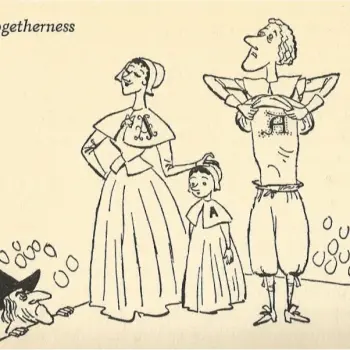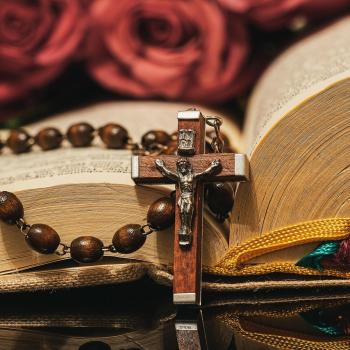Mitt Romney's and Jon Huntsman's runs for the presidency have inspired any number of people to ridicule Latter-day Saint beliefs, not just comedians. Were it only comedians who attribute outlandish or outdated beliefs to us, I wouldn't care very much. But newscasters and politicians—none of whom I am going to link to—have joined the ill-informed response to Romney and Huntsman.
There is no question that Mormons have some unusual beliefs and practices when compared to other religions. There is no question that, historically, some Mormons have believed unusual things. But the real question is what do we believe today? The importance of that question is underscored by the fact that we believe in continuing revelation: the present leaders of the Church declare Mormon belief. We are not bound to believe what was formerly taught, even if it was formerly taught as doctrine.
At one time, we practiced polygamy. That practice was revealed by revelation through Joseph Smith, our founding prophet, in the 1840s. It was so important to us that we were willing for the Church to be unincorporated by the federal government and for our leaders to be imprisoned. Then the practice was repealed by revelation through Wilford Woodruff in 1890 (see Doctrine and Covenants, Official Declaration 1).
There were some hiccups. Some people had a difficult time with the new doctrine, but in a relatively short time, the LDS Church and its members completely reversed course because of a revelation given by the prophet. Now the practice of polygamy is an excommunicable offense.
At one time Mormons denied the priesthood to those of black African ancestry. We don't know why we did that, though many of us have ideas. But the practice was suspended in 1978 by revelation (Doctrine and Covenants, Official Declaration 2). Some Mormons had believed that the practice was doctrinal, but even they changed their belief when the revelation was announced. Almost everyone, whatever their explanation of the practice, thanked God for what had been so long in coming. The Church switched from denying the priesthood to granting it with almost no hiccups.
That is not to say that we have worked out all the kinks that we and the rest of the United States have inherited from slavery. In that regard we are, unfortunately, too much like everyone else. But whereas a little more than thirty-three years ago it was unimaginable that a black person would be ordained in an LDS church, a little less than thirty-three years ago it was immediately imaginable and done.
The point of referring to polygamy and the priesthood ban is that Mormon belief is not a static thing to which one can point, given at the time of Joseph Smith or Brigham Young or some other early leader and stable since then. The more important point, however, is that Mormon belief isn't as central to Mormonism as are Mormon experience and Mormon life. For us, beliefs are supplemental rather than fundamental to the practices and institutions of Mormonism. (See my related column, "Just say . . . whatever!" for a discussion of this.)
But beliefs are important and, of course, we do have beliefs. So let me say something about a couple of the beliefs that are currently the object of considerable journalistic, political, and sometimes even ministerial mockery.
Start with "magic underwear." Latter-day Saints who have taken part in the sacred ritual of the temple wear an undergarment as a reminder of the covenants they make in that ritual. Similar kinds of religious tokens are not unusual: crosses as jewelry or on the wall of a home, yarmulkes, a priest's or minister's collar, wedding rings, head scarves, and other items serve a similar function.
It is also not unusual for folk beliefs to attach to such physical reminders. The soldier protected from death by the Bible in his pocket is one example. Similarly, it is not difficult to find folk beliefs about LDS undergarments saving people from fire or other physical harm. But it would be a mistake to confuse the folk beliefs one finds attached to a religious symbol with the meaning of the symbol itself.





